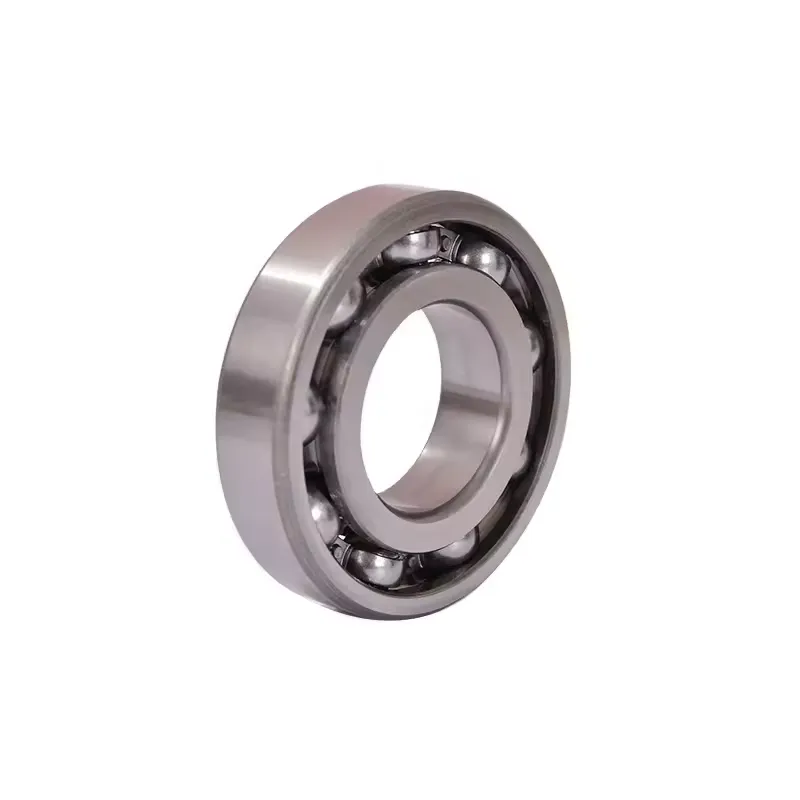нов . 22, 2024 02:47 Back to list
ceramic coated bearings
The Advantages of Ceramic Coated Bearings Enhancing Performance and Longevity
In the world of machinery and motorsport, the quest for improved performance and durability drives constant innovation. One such advancement is the development of ceramic coated bearings, which have emerged as a game-changer in various applications, from high-speed racing engines to everyday industrial machinery. Understanding the benefits of these specialized bearings can help professionals and enthusiasts alike make informed decisions when selecting components for their projects.
Ceramic coated bearings are traditional bearings that undergo a coating process involving ceramic materials, leading to a range of performance enhancements. The primary advantage of using ceramics lies in their extraordinary hardness and resistance to wear. Unlike steel bearings, which can suffer from pitting and degradation over time, ceramic materials maintain their structural integrity under extreme conditions. This increased hardness translates to longer life cycles, making ceramic coated bearings a cost-effective solution in the long run.
Additionally, ceramic materials exhibit significantly lower friction coefficients compared to their metal counterparts. This reduced friction leads to improved efficiency, as machines require less energy to operate. In high-performance scenarios, such as in motorsports, this means faster lap times and better handling. The reduced friction also contributes to less heat generation, which can be crucial in maintaining optimal performance during extended use. As a result, equipment with ceramic coated bearings can often perform at higher RPMs without the risk of overheating.
ceramic coated bearings

Another significant benefit of ceramic coated bearings is their resistance to corrosion and chemical damage. This property makes them particularly valuable in environments subjected to harsh conditions, such as marine applications or industries dealing with corrosive substances. The ceramic coating acts as a barrier, shielding the underlying metal from moisture, salt, and other corrosive agents. Consequently, these bearings can operate reliably for extended periods, reducing maintenance requirements and downtime.
Moreover, ceramic coated bearings are lightweight, which is a boon for applications where minimizing weight is crucial. In aerospace and automotive industries, every ounce counts, and utilizing lighter components can lead to substantial improvements in efficiency and performance. By incorporating ceramic coatings, engineers can achieve reduced overall system weight while not compromising on strength or durability.
However, it's essential to consider the application when choosing ceramic coated bearings. While they offer numerous advantages, they may not be necessary for all situations. For routine machinery where high performance isn't critical, traditional bearings may still serve well. Furthermore, the initial cost of ceramic coated bearings is generally higher than standard options, making it important to evaluate the long-term benefits against the upfront investment.
In conclusion, ceramic coated bearings represent a significant advancement in bearing technology, offering numerous advantages that enhance performance, durability, and efficiency. Their unique properties—such as lower friction, wear resistance, corrosion protection, and lightweight characteristics—make them an attractive choice for high-demand applications. As industries continue to evolve and the pursuit of performance remains paramount, the adoption of ceramic coated bearings is likely to increase, leading to more reliable and efficient machinery across various sectors. By understanding these benefits, users can make informed choices that optimize their equipment's performance and longevity.
Latest news
-
25MM 2 BOLT UCFLX05-14 Flange bearing unit( oval)
NewsMar.07,2025
-
4 bolt UCF 200 series Pillow block bearings
NewsMar.07,2025
-
25MM 2 BOLT UCFLX05-14 Flange bearing unit( oval)
NewsMar.07,2025
-
UCF216-50 4-Bolt Flange Housing Square Bearing
NewsMar.07,2025
-
25MM 2 BOLT UCFLX05-14 Flange bearing unit( oval)
NewsMar.07,2025
-
spherical roller bearing material exporter
NewsMar.07,2025





